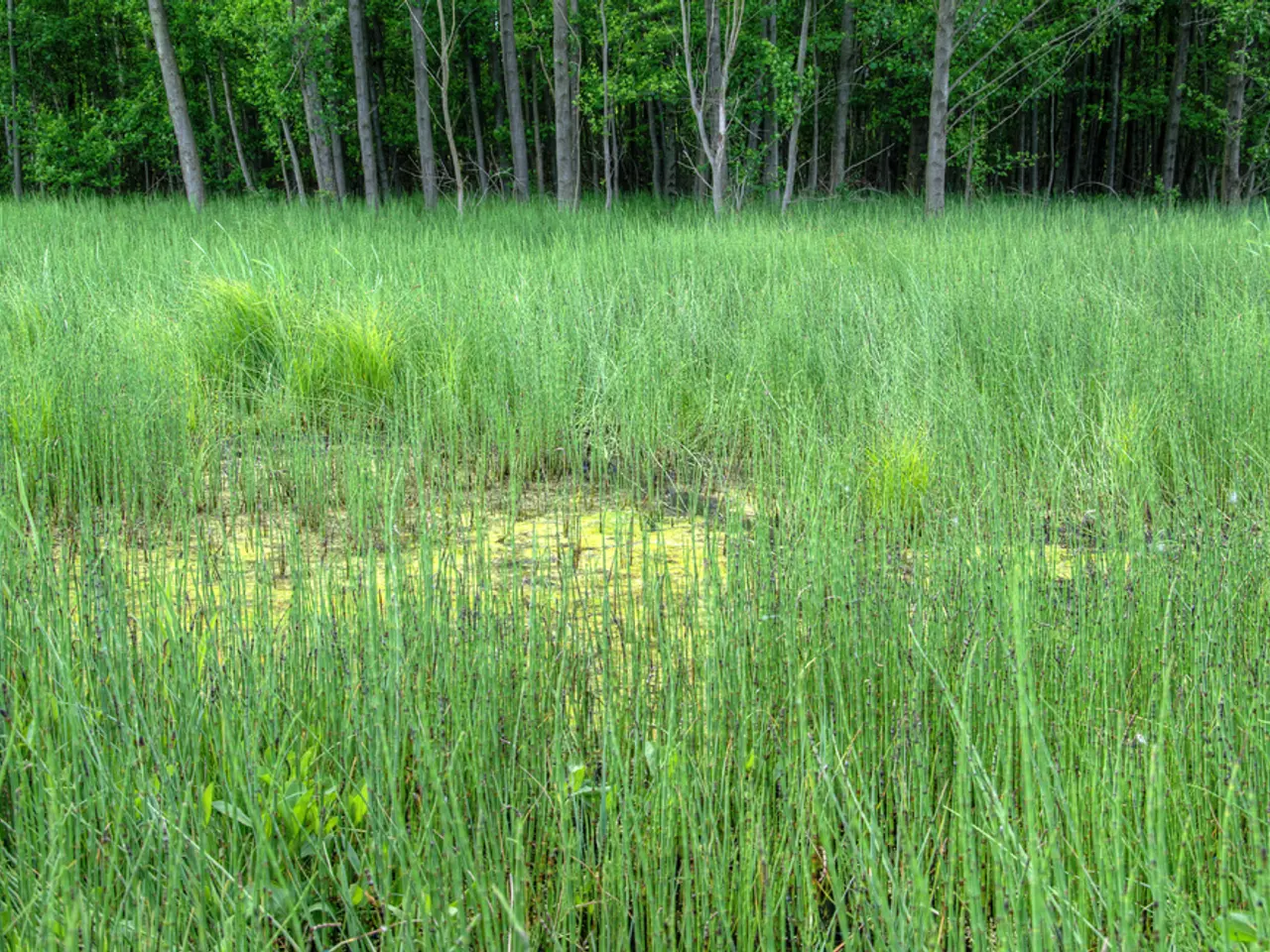Majority of Aid Applicants in 2025 Prefer Eco-Friendly Schemes for Aid Allocation
The European Union's Common Agricultural Policy (CAP) for the year 2025 is set to bring about a significant shift towards a more sustainable and competitive agricultural future.
From October 16, the autonomous communities can pay in advance, and the majority of the aid will be disbursed by June 30, 2026, at the latest. The total amount of direct aid for the 2025 campaign is 4,889 million euros. A total of 582,085 farmers and livestock farmers have submitted a single application for CAP aid for 2025.
The CAP, created in the 1960s, has been instrumental in modernizing European agriculture, reducing inequalities among farmers, and ensuring competitive agricultural production in the global market. The policy continues to adapt and evolve, as seen in the 2025 campaign, where there has been a focus on eco-regulations.
Eco-regulations have been requested for 19.2 million hectares in the 2025 CAP campaign, representing 88% of the total declared in the single application for basic income support for sustainability. This shift towards sustainable practices is evident in the increase in the surface area requested for eco-regulations in autonomous communities where the level of acceptance was below the average in the 2024 campaign, such as the Balearic Islands, Galicia, Madrid, and Murcia.
Implementation of beneficial practices by farmers and livestock breeders on a high percentage of the surface contributes significantly to environmental and climate objectives. These practices improve soil structure, fertility, and carbon capture capacity, increase crop diversity, and promote biodiversity linked to agricultural ecosystems.
The number of agricultural holdings applying for aid has decreased by 2.7% compared to the previous campaign. However, 81% of farmers and livestock farmers applying for basic income support in the 2025 CAP campaign have requested some eco-regulation, which is a two-point increase from the 2024 campaign.
The requested surface for associated aid linked to a certain production has seen some changes. There has been an increase in the surface area requested for rice and dried fruits, while it has decreased for sugar beet, processed tomato, olive groves, and cotton. The requested surface of protein crops and raisins remains stable.
The continuity and adaptation of the CAP are essential to guarantee a sustainable, competitive, and nature-respecting agricultural future in the European Union. The CAP is funded by the European Union's budget, and most of the applications include at least one direct aid from the National Strategic Plan 2023-27. The extension of the deadline to May 31 allowed all applications to be processed.
In conclusion, the 2025 CAP campaign marks a significant step towards a more sustainable and competitive agricultural future in the European Union. The focus on eco-regulations and the increase in the number of farmers requesting these regulations demonstrate a commitment to environmental and climate objectives. The CAP continues to play a crucial role in modernizing European agriculture and ensuring its competitiveness in the global market.
Read also:
- visionary women of WearCheck spearheading technological advancements and catalyzing transformations
- Recognition of Exceptional Patient Care: Top Staff Honored by Medical Center Board
- A continuous command instructing an entity to halts all actions, repeated numerous times.
- Oxidative Stress in Sperm Abnormalities: Impact of Reactive Oxygen Species (ROS) on Sperm Harm








